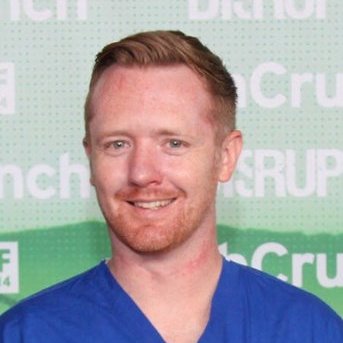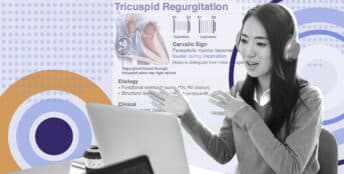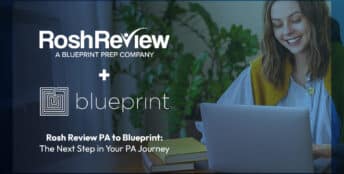Elite Test-Taker Profile: Ryan Ribeira, M.D., M.P.H

Q. Do you have a specific pretest breakfast?
Protein shake, egg on toast. In general I eat high fat and protein foods because I find them more filling and to provide more sustained energy.
Q. Do you have any night-before-the-exam routines?
For 1-2 days before the exam I follow a set routine if at all possible. Go to bed the same time I plan to go to bed the night before the exam. Wake up at the same time I plan to wake up. Eat the same breakfast. Do a practice test starting at the same time I will take the actual test. Wear the same kind of headphones you wear at testing centers, etc. This is all designed to eliminate day of test jitters, which can mess you up no matter how much you’ve prepped. By the time I take the test, it all seems routine. Its familiar ground.
Q. What do you bring for lunch during your exam?
Protein bars. High fat and high protein snacks like cheese sticks and hard boiled eggs. Gives more sustained energy and leaves me less hungry.
Q. Do you have any strategies that you employ during the exam (e.g. Answer particular questions first, answer hardest questions last, etc)?
If I have read the stem, I will not leave the page without answering the question. Time is of the essence in standardized exams. I cannot depend on being able to go back and read the stem a 2nd time, and leaving an answer blank is not useful. I have two tiers of question marking. Tier one indicates that I think I could figure out the right answer with a bit more time, and tier two indicates a questions I am not sure about, and don’t know if I can figure out. Once I finish my first pass of the test I go back and work on the first set of questions and do all those before looking again at the 2nd tier questions and (potentially) wasting my time on questions I simply do not know the answers to. I also figure out ahead of time how many seconds per questions I have available for each question, figure out two thirds of that (to preserve a third of my time for reviewing questions) and then figure out how many minutes into the test I should be at question 5, 10, 15, etc to stay on track. I check my time every 5 minutes and adjust accordingly if I’m behind. I stick to this pretty strictly during the exam and during my studying. I’d rather guess at a question and stay on track than get behind and risk not finishing in time, or not having time at the end to pick up low-hanging fruit from tier 1 questions.
Q. Can you describe your most effective study strategies.
A large volume of questions is a huge part of effective study for me. Questions are easy to do in small or large blocks so it’s easy to get started even when you don’t have much time. A big part of my strategy has been reducing barriers to study initiation. If your study strategy requires you to be in a specific place, in a specific environment, with fancy pens and lots of books around, you will never have time to get in the volume you need. I listen to podcasts whenever I’m driving or walking. I do questions whenever I have more than 5 minutes of downtime. For me, this is how I fit studying into a busy clinical schedule.
Q. Do you listen to music while you study?
No.
Q. Which of the following types of media do you currently use to study?
Qbanks and podcasts
Q. Do you study in groups?
No.
Q. How do you avoid distractions while you are studying?
I don’t. I accept that distractions are part of the process. I used to focus a lot on eliminating distractions during studying and found that as a result I was wasting a lot of time setting up my study space, and not making use of a lot of otherwise good study time because the environment was “too distracting.” Instead I’ve tailored my study style to reflect an inherently distracting environment, based around material that can be studied in small chunks, and which only requires short periods of focus. This method also requires you to carve out some time for practice tests performed in an environment analogous to the test so that you aren’t unfamiliar with that environment. But I feel that for initial studying it’s valuable to study in ways that don’t fight the environment. For what it is worth I’m in emergency medicine and also find that studying this way allows me to better access the information I’ve studied while in the chaotic environment of the ED. Research shows it’s easier to access information when you are in an environment analogous to the environment in which it was originally acquired. So if everything you learned was acquired while sitting at a particular desk, with particular headphones, with particular scents and sounds around you, you might find it hard to access that information anywhere else.
Q. Do you highlight textbook text when studying?
No.
Q. How far in advance do you begin to prepare for a major standardized exam?
2-4 months.
Q. Is there anything else you think is important to mention regarding high performance on a standardized exam?
Everything about preparing for a test and doing it is all about volume. The more times you see material the more you will remember it. No matter who you are. The more you familiarize yourself with the test environment the more natural it will be and the less you will be affected by test day jitters. No matter who you are. These are things anybody can do.
Ryan Ribeira, M.D., M.S. is an emergency medicine and chief resident at Stanford emergency medicine residency program. Ryan is also founder and CEO of SimX. You can follow Ryan on Twitter at @RyanRibeira
Please leave your comments below. As we continue our Elite Test-taker series, let us know particular questions you want answered. Also, we are always looking for other elite test-takers to share their experiences to help thousands of other students around the world.
Don’t forget to check out this quick read on how to increase your exam score by 10 points.





Comments (0)